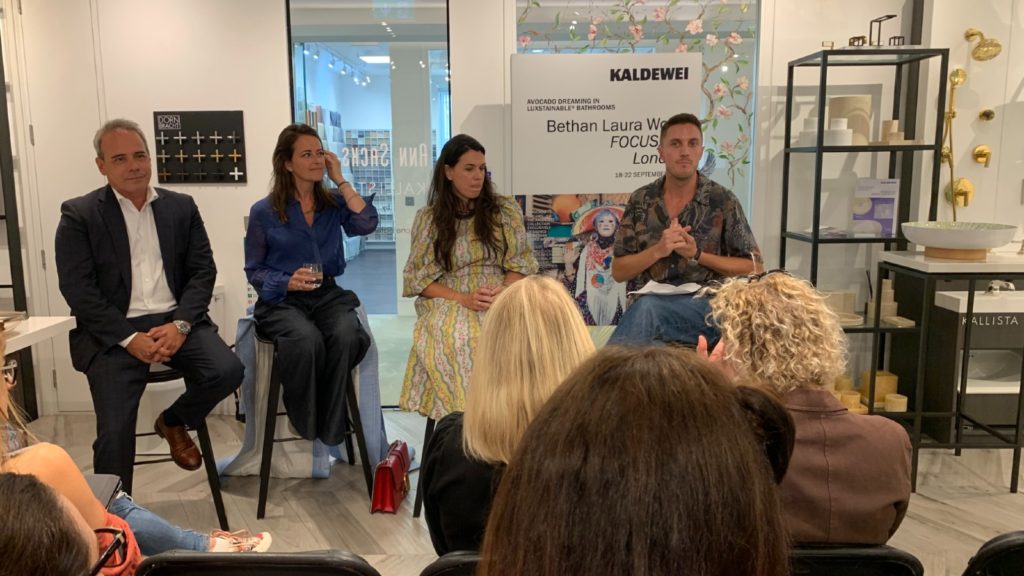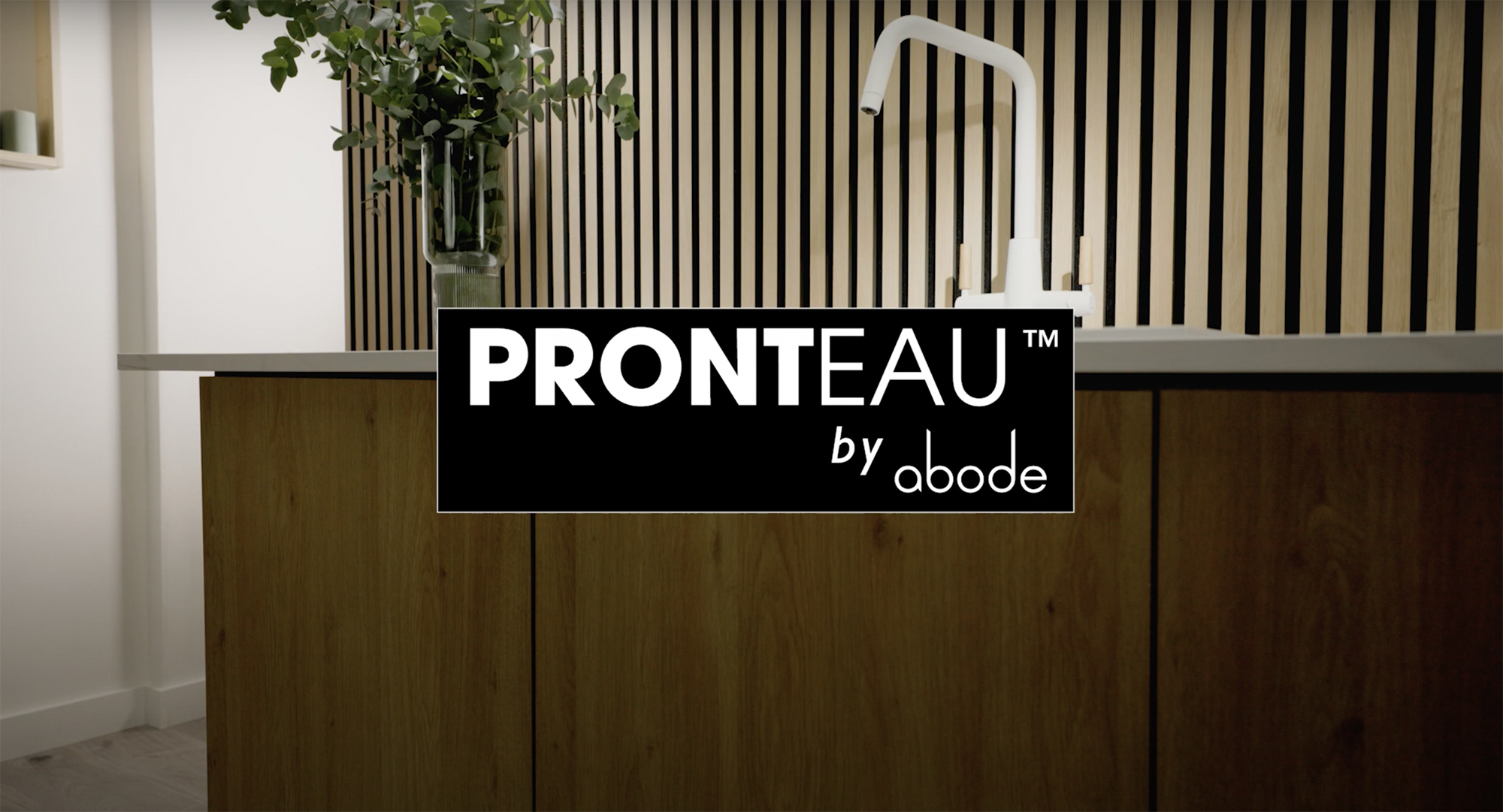Designers should demand suppliers show their sustainable credentials and lead their clients to make more eco-friendly interior choices, found an expert panel at a West One Bathrooms event.

The discussion “How to encourage clients to make the right choices for a greener home” was held during Focus 23 at the luxury bathroom retailer in Chelsea Design Harbour.
Chaired by design journalist Roddy Clarke, the panel included founder of the Haines Collection Jules Hales, founder and director of interior design practise Studio Suss Simone Suss and member of Kaldewei executive board Roberto Martinez.
Sponsored Video
Simone Suss who sits on the Sustainability Panel of the British Institute of Interior Designers (BIID) and represents the BIID on the Construction Industry Council Climate Change Committee said she finds it is designers – not clients – driving change.
Suss, who is also a co-founder of Interiors Declare, part of the Architects Declare Climate and Biodiversity Emergency, explained sustainability “is not being driven by clients as much as I would like to see”.
She explained as more suppliers were becoming sustainable in the luxury sector, it was easier to find sustainable products and her practice takes responsibility to present these to clients.
“It’s down to us, internally, to manage our edit of what we are showing our clients”, she explained.
Suss stated: “We want to feel good about the purchase that we’re making, because then I think our clients feel good about the houses and spaces that we are creating for them.”
Jules Haines of the Haines Collection, a website which helps reduce interior design waste by rehoming excess products such as tiles, lighting and fabric, says designers should try to be “reasonably” fluid to captialise on sustainable choice.
“In my home, I always aim for a feeling and a look, and as long as it [a product] fits into that, I’m quite flexible as long as it meets those end goals.”
Suss added: “I think that’s really important. one of the first things we ask clients, in any spatial design, is ‘how do you want to feel?’ If we know we’re doing something good for the planet, it’s just feels a little bit better.”
Executive board member of Kaldewei Roberto Martinez, said sustainability is a complicated issue and warned designers against the overreliance of brands, to offer ‘green’ credentials but to identify individual products
He said in the bathroom industry manufacturers now offer so many products, they cannot all be the most sustainable in each product category.
Roberto Martinez urged the audience to challenge brands to find out if they have a genuine commitment to ‘green’ policies: “We would really like to ask you designers and architects to be more demanding to the industry to prove sustainability.”
To help guide designers to become wiser about sustainable products, he pointed to the science-based results of Environmental Product Declaration (EPDs) to provide data-backed research.
Although Robert Martinez said an EPD is not a ‘green’ certificate, he said it offers transparency on the environmental impact of a product and allows for comparison.
However, Simone Suss stated: “It’s very much incumbent on the suppliers to be presenting their data in a palatable way for designers, so that we can understand and ask questions of other suppliers to do the same.”
Martinez said designers should create bathrooms with long-lasting products which feature timeless design that boast circularity, as he pointed out his company recycles steel.
Established for over 100 years, Kaldewei manufactures enamelled steel baths and showers, which are recyclable, and which come with EPDs and 30-year warranty.
Concluding the discussion, Jules Haines highlighted the importance of communication and sharing knowledge: “By having these conversations, you end up spreading the word, and I think that’s the only way we’re going to learn and keep evolving.
“We are all aiming for the same thing to leave the earth a better place than when we came into it.”



